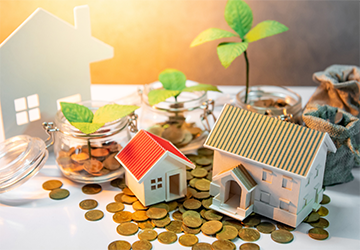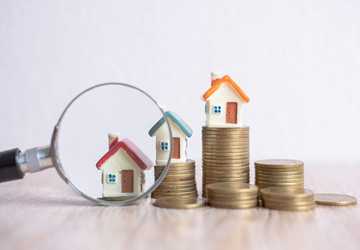How to Evaluate Your Property’s Potential as a Rental

Investing in real estate can be wise for those looking to diversify their portfolio and generate passive income. One way to do this is by renting out a property. However, becoming a successful landlord requires more than purchasing a property and finding tenants. It's important to evaluate the property's potential as a rental and determine whether it fits your investment goals well.
Evaluating a property's rental potential involves more than looking at its current market value. Several factors can impact the success of a rental property, such as location, condition, size, and amenities. Additionally, it's important to consider the current rental market in your area and determine if there's enough demand for rental properties.
Taking the time to evaluate your property's rental potential can help you decide whether to rent it out. It can also help you make any necessary repairs or updates before finding tenants. In this article, we'll explore tips on evaluating your property's rental potential and making the most of your investment. By following these tips, you can become a successful landlord and achieve your investment goals.
Here are some additional details you can consider under each of the headings mentioned in the article:
1.Location
Location is perhaps the most crucial factor when evaluating a property's potential as a rental. An ideal location is close to essential amenities such as schools, hospitals, grocery stores, and public transportation. This will make it more convenient for renters to access these facilities. If your property is in an area with high demand, you can expect a higher rental income.
However, location is about more than just the property's immediate surroundings. It would be best to consider the broader picture, such as the city's economic outlook and the job market. An area with a growing economy and a healthy job market will attract more renters willing to pay a higher rent. Additionally, check for any zoning regulations or changes in the area that may affect the property's value.
2.Condition
The condition of your rental property will play a critical role in attracting renters and determining your rental income. Before renting the property out, you must keep it in good condition, free of any significant repairs or defects. Any repairs or maintenance issues should be fixed before you put the property on the market.
Consider the property's exterior and interior appearance. If the paint is chipped, there are holes in the walls, or the flooring is damaged, it may be challenging to attract quality renters. A clean, well-maintained property will make setting a higher rental price easier.
3.Size and Layout
The size and layout of your rental property will affect its attractiveness to potential renters. Consider the number of bedrooms, bathrooms, and overall square footage. Properties with more bedrooms and bathrooms are generally more attractive to renters, especially families.
The layout of the property also plays a significant role. Open-concept floor plans are popular among renters as they provide a spacious feel to the property. However, ensure that the property's layout is practical and functional. A poorly designed layout may not appeal to renters and could affect your rental income.
4.Amenities
Amenities are additional features or facilities that enhance your property's appeal to potential renters. Amenities could include a swimming pool, gym, parking, and laundry facilities. Offering desirable amenities can help you differentiate your property from other rental properties in the area, making it easier to attract renters.
However, keep in mind that not all amenities are equal. The amenities you offer should align with the property's rental price. For example, you may want to offer something other than a luxury spa to renters in a budget property.
5.Rent Prices
Setting the right rent price is critical when evaluating your property's potential as a rental. A rent price that is too high may drive away renters, while a rent price that is too low may result in a lower rental income. Research the rental prices in the area to set a competitive rent price.
However, setting a rental price is about more than just the competition. When setting the rent price, you should also consider the property's unique features, such as amenities, size, and location. These features can help you justify a higher rent price than other rental properties in the area.
FAQ:
Here are some frequently asked questions (FAQs) about how to evaluate your property's potential as a rental:
Q: What should I consider when evaluating my property's potential as a rental?
A: There are several factors to consider, including location, rental demand, property condition, rental rates in the area, and the potential for future appreciation. It would be best to consider your goals as a landlord, such as whether you want to be hands-on or hands-off with management and how much time and effort you're willing to invest in the property.
Q: How can I determine rental demand in my area?
A: You can research rental listings online to understand what properties are available in your area and how quickly they are being rented. You can also check with local real estate agents and property management companies to get a sense of the rental market in your area.
Q: What factors should I consider when determining rental rates?
A: You should consider factors such as the size and condition of your property, the amenities you offer, the location of your property, and the rental rates of comparable properties in your area. It's also important to set a reasonable and competitive price in the current market.
Q: How can I estimate my potential rental income?
A: To estimate your potential rental income, research rental rates for similar properties in your area and multiply that by the number of units you plan to rent out. Remember that additional expenses, such as property management fees, maintenance costs, and vacancies, may impact your actual rental income.
Q: What should I do if I need clarification on the potential of my property as a rental?
A: If you're not sure about the potential of your property as a rental, you may want to consult with a local real estate agent or property management company. They can provide valuable insights into your area's rental market and help you determine whether your property is a good fit for rental purposes.
Take away:
Evaluating your property's potential as a rental requires considering several factors, including location, condition, size and layout, amenities, and rent prices. By carefully evaluating these factors, you can decide whether renting out your property is the right choice for you.






